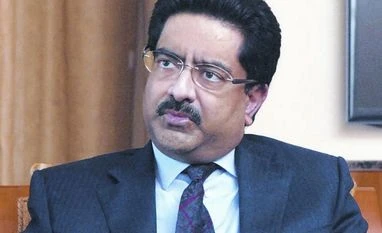The Kumar Mangalam Birla group is keen to announce the merger of Idea Cellular with Vodafone India at the same time as it sends out voting notices to shareholders of Grasim Industries and Aditya Birla Nuvo (Nuvo) on their merger in the first week of March.
Voting on the Grasim-Nuvo proposal will remain open for a month. Group officials expect concerns of Grasim’s shareholders over Nuvo’s exposure to Idea Cellular will be mitigated with the announcement.
Falling returns on capital employed of Idea Cellular and massive cash requirements in the telecom business because of Jio’s entry were a big concern for Grasim shareholders, who did not want an exposure to the telecom business.
Grasim is one the co-promoters of Idea Cellular, with 4.75 per cent stake in the company, worth around Rs 2,000 crore based on its current market price. Grasim’s total investment cost for this stake in Idea is Rs 171 crore. In comparison, Grasim’s Rs 2,636-crore investment in UltraTech Cement is worth around Rs 63,000 crore.
Grasim also owns small stakes in other group companies such as Hindalco Industries, Aditya Birla Nuvo and Aditya Birla Fashion.
At present, all new-age businesses of the Kumar Mangalam Birla group, such as financial services and telecom, are under Nuvo, while stakes in mature businesses like cement are with Grasim. Aditya Birla Nuvo is the largest promoter shareholder of Idea Cellular with 23.25 per cent stake, followed by family holding company Birla TMT Holdings (7.87 per cent) and Hindalco Industries (6.34 per cent).
There has been a consistent deterioration in Idea Cellular’s financial ratios in the past few quarters because of a combination of higher interest cost and Reliance Jio launching its free services, which forced incumbent telecom operators to cut tariff.
The company reported a net loss of Rs 72 crore during the first nine months of FY17 against a net profit of Rs 2,276 crore during the corresponding period a year ago. Its interest cost went up nearly one-and-a-half times in the same period, while revenues grew just 3.7 per cent.
Analysts at Motilal Oswal expect its return on capital employed (RoCE) to decline from 7.1 per cent in FY16 to 2.7 per cent in FY17 and to 0.3 per cent the next year. This, they believe, may force Idea Cellular to either increase borrowings or ask for additional equity capital from its shareholders, which may not go down well with the minority shareholders of Grasim and Aditya Birla Nuvo.
Insiders said the Vodafone-Idea merger would result in Vodafone Plc and Aditya Birla group holding equal stakes (around 37 per cent each) in the merged entity, with the rest held by the public.
Both companies could also sell parts of their shareholding to a strategic investor so as to infuse funds into the merged entity. Besides, Idea Cellular also plans to sell stake in its own telecom tower business so as to get funds into the company. The entire merger plan would take at least a year to roll out beginning next month, said sources. Aditya Birla group declined to reply to queries.
When the Grasim-Nuvo merger was announced, proxy advisory firms had slammed it, saying it was not in the interest of shareholders of either Grasim or Nuvo.
InGovern had said the public shareholders of Grasim should be aggrieved, as the new Grasim would be a combination of multiple businesses and difficult to understand. In addition, the debt-equity ratio of Grasim would increase substantially. Grasim is almost debt-free at present when adjusted for cash and equivalents on its books, while Idea Cellular owes the second-biggest debt pile in the group after Hindalco Industries.
Aditya Birla Nuvo also has a leveraged balance sheet because of its exposure to capital-intensive businesses such as insurance and commercial lending besides telecom. With the combined entity’s (Grasim and Nuvo) stake in the Idea-Vodafone combine, concerns of Grasim and Nuvo shareholders over increased investments would be reduced.
Apart from the merger proposal, Idea Cellular had also planned to reduce costs, especially network operating costs, driven by intra-circle roaming arrangements and active infrastructure sharing. The current manpower freeze at Idea will also contribute to cost savings. The impact of the cost reductions are expected to be seen in FY18, said an analyst.
Another worry for Idea shareholder was low returns on investments. The Street expects the RoCE of the Vodafone-Idea combined entity to improve to around five per cent due to synergy gains from the merger. This, coupled with access to Vodafone Plc’s global pool of low-cost capital, would be a breather for the minority shareholders of Grasim and Aditya Birla Nuvo losing sleep over Idea’s falling profitability.
Unlock 30+ premium stories daily hand-picked by our editors, across devices on browser and app.
Pick your 5 favourite companies, get a daily email with all news updates on them.
Full access to our intuitive epaper - clip, save, share articles from any device; newspaper archives from 2006.
Preferential invites to Business Standard events.
Curated newsletters on markets, personal finance, policy & politics, start-ups, technology, and more.
)